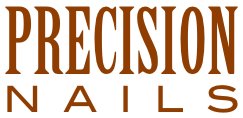Article Published in Stylist Magazine, January 2013
What makes us “professional?” In the broadest sense, anyone working in the beauty industry could be considered “professional,” including those who are not licensed, competent, ethical, legitimate or financially successful. Is being all of those things too much to expect of a “beauty professional?” We all know examples of talented, hard-working individuals who can’t support themselves, and others who do well for themselves, but work illegally. How do we reconcile ourselves to a concept that divides us, the concept of being professional?
Consider the efforts of the Professional Beauty Association (PBA), our industry’s largest trade association. Earlier this year, the PBA invited all beauty professionals to “Take the Pledge” and commit to a code of ethical practices. Each PBA membership section (Salon Owners, Licensed Professionals, Manufacturers and Distributors) has its own code online to “print, sign and display (press release dated July 6, 2012). If not already a member of the PBA, you may have missed this invitation to “Take the Pledge,” but it’s available to you “regardless of membership.”
For most readers, the applicable code would be either for Salon Owners or Licensed Professionals. This statement precedes each one: “In order to ensure and promote integrity in the professional beauty industry, PBA expects all members of the [insert section name here] section to abide by the standards which are reflected in this Code of Ethical Practice.” As might be expected, there’s significant overlap between the codes for salon owners and licensed professionals, with minor wording variations:
Provide high quality professional beauty products and services to the consumer.
Keep licensing and/or registration current as required by federal, state, and local authorities.
Keep insurance current as required by federal, state, and local authorities.
Accurately report tips and income as required by federal, state, and local authorities.
Only use professional products and not divert products.
Promote ethical pricing on products and services.
Make all advertising and sales promotions factually accurate.
Additionally, Salon Owners pledge to:
- Promote positive awareness about the beauty industry.
- Subscribe to and follow accountabilities standards.
And Licensed Professionals also pledge to:
- Follow safety and sanitation guidelines.
- Follow tax accountabilities.
What good does it do to pledge to follow laws and guidelines if you don’t know what they are? Beauty professionals don’t lack commitment, they lack information. I’ve supported the PBA for years, and especially appreciate its Nail Manufacturer Council on Safety (NMC). Scientific information from this trusted source benefits both the nail industry and consumers, and I reference it often. Even if the NMC were the only function of the PBA, it would make my membership worthwhile. Yet, I have a difficult time convincing other salon owners and licensees to join this organization. Why is that?
Granted, the impact and appeal of the PBA would be greater if there were national standards, testing and licensure, but that’s not the case. Our individual concerns tend to be more immediate because most of us work at the local level, regulated by our respective state governments. And at the federal level, where laws affect all of us, we don’t support each other and our industry as we should, especially with regard to legal compensation of employees and our tax obligations.
With all due respect, the PBA’s ongoing efforts to lobby Congress to pass The Small Business Tax Equalization and Compliance Act (SB974/HR195, also known as the FICA Tip Tax Credit), have not yet been successful. To its credit, the PBA does an excellent job of explaining its position that salon owners should not be responsible for paying taxes (7.65%) on tip income paid to service providers by consumers. Twenty years ago, the lobbying efforts of the National Restaurant Association resulted in a federal dollar-for-dollar tax credit for restaurant owners, known as section 45B of the Internal Revenue Code. However, that credit does not apply to salon owners and their employees, no matter how comparable the industries.
The proposed legislation is fundamentally fair and logically sound, but how many within the beauty industry even know about it? Sadly, even if they knew, I’m sure that many would think it’s not their problem. This legislation doesn’t directly affect manufacturers or distributors; their employees don’t collect tips. And let’s be real: many licensed professionals don’t report their tip income, and many salon owners don’t take financial responsibility for their workers as employees (although if audited, the IRS would categorize them as such). So we’re left with the PBA and salon owners who follow the law and pay their employment taxes fighting for this legislation? That’s not very encouraging, and apparently not enough. It’s time we come together as professionals for the better of our industry; we need each other’s support.
By Jaime Schrabeck, Ph.D.




